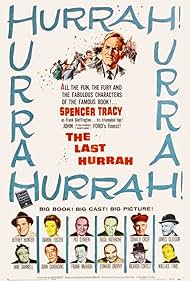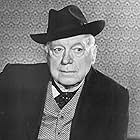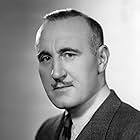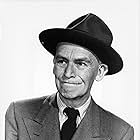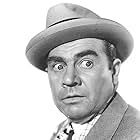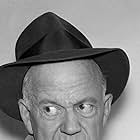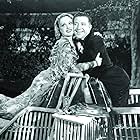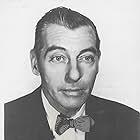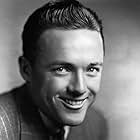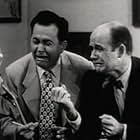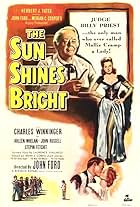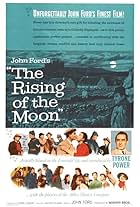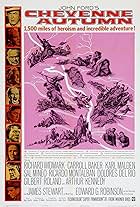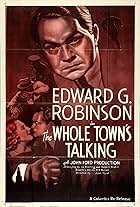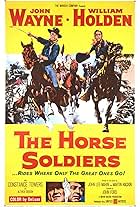IMDb RATING
7.3/10
4.3K
YOUR RATING
Frank Skeffington is an old Irish-American political boss, running for re-election as mayor of a U.S. town for the last time.Frank Skeffington is an old Irish-American political boss, running for re-election as mayor of a U.S. town for the last time.Frank Skeffington is an old Irish-American political boss, running for re-election as mayor of a U.S. town for the last time.
- Nominated for 1 BAFTA Award
- 3 wins & 1 nomination total
- Director
- Writers
- All cast & crew
- Production, box office & more at IMDbPro
Storyline
Did you know
- TriviaEdwin O'Connor's 1956 novel The Last Hurrah, on which the movie is based, is a fictionalized version of former Boston mayor James Michael Curley, a celebrated rogue who raised municipal corruption to an art form. Curley tried to stop production, not because he was being negatively depicted, but because he believed the film would prevent Hollywood from making a biographical film of his life the way he wanted it done. Curley died at age 83 in 1958, the year the film was released. He had last served as mayor from 1946-50. Skeffington also says that he was several times mayor of " . . . this great city, and governor of the state", even though the name of the city and state are never revealed.
- GoofsWhen Frank Jr. bursts into the bedroom to see his dying Father, the doorknob comes apart and the interior knob falls off. The Doctor immediately follows him into the room, and the doorknob is once again intact.
- Quotes
Roger Sugrue: [standing by Skeffington's bed] Well, at least he made his peace with God. There's one thing we all can be sure of - if he had it to do over again, there's no doubt in the world he would do it very, very differently.
Mayor Frank Skeffington: [opening his eyes] Like hell I would.
- ConnectionsFeatured in Directed by John Ford (1971)
Featured review
They must have had a very good time in the old town when they shot this movie in the late 1950s. Ford's best movies were behind him, but he's gathered a cast of old character actors, enough to have a genuine party, with Ford sobbing in his beer about how the old days are gone forever. O.Z. Whitehead, Edwin Brophy, Basil Rathbone, Donald Crisp, Jane Darwell, Jeff Hunter, Carlton Smith? Some of the names escape me.
Ford's Irishness goes over the top in his puncturing of the WASPS who were his opponents in old Boston. (I suppose Spencer Tracy is supposed to be Mayor James Curley -- as in the campaign jingle, "Vote early and often for Curley.") The movie drips with sentiment and a sense of loss for a more innocent time -- before TV ads. One of the best lines in the movie is when Basil Ruysdael as the Protestant Bishop brings Tracy up short by asking him frankly, "Aren't you being a little TOO Irish?"
The novel was a bit better, as most novels are compared to their transformative expression in film, if only because there is time and space enough for the characters and the story can be more fully developed. The focus of course is on the mayor, a lovable rogue. The last line in the novel is from an admirer, "He was a grand man altogether."
For what it's worth, the political agenda is built around the substory of two political enemies, Tracy and Rathbone (the latter made into a former member of the KKK in case we didn't get the point otherwise) and their sons, each of them failures. Tracy's son is a ne'er-do-well whose only interest is new cars and women and who assures Tracy, "Ah, you'll win, Pop. You always do." Rathbone's son (Whitehead) is a rich dull bulb who is easily manipulated into making a fool of himself so that Tracy can blackmail Rathbone. Whitehead is given a lisp to make him as silly as possible. "Do you do much sailing?" "Oh, yeth. Printhicipally on my thloop."
In the early scene in Skeffington's office we see a row of old photos of bearded men hanging on the wall behind his desk. Prominent among them is probably the best known portrait ever published of Sigmund Freud, taken about 1912. Maybe the prop master recognized it subconsciously for what it was and sensed that it was a photo of a prominent-enough figure to be worth displaying in the Mayor's office. This is known as a Freudian slip.
Ford's Irishness goes over the top in his puncturing of the WASPS who were his opponents in old Boston. (I suppose Spencer Tracy is supposed to be Mayor James Curley -- as in the campaign jingle, "Vote early and often for Curley.") The movie drips with sentiment and a sense of loss for a more innocent time -- before TV ads. One of the best lines in the movie is when Basil Ruysdael as the Protestant Bishop brings Tracy up short by asking him frankly, "Aren't you being a little TOO Irish?"
The novel was a bit better, as most novels are compared to their transformative expression in film, if only because there is time and space enough for the characters and the story can be more fully developed. The focus of course is on the mayor, a lovable rogue. The last line in the novel is from an admirer, "He was a grand man altogether."
For what it's worth, the political agenda is built around the substory of two political enemies, Tracy and Rathbone (the latter made into a former member of the KKK in case we didn't get the point otherwise) and their sons, each of them failures. Tracy's son is a ne'er-do-well whose only interest is new cars and women and who assures Tracy, "Ah, you'll win, Pop. You always do." Rathbone's son (Whitehead) is a rich dull bulb who is easily manipulated into making a fool of himself so that Tracy can blackmail Rathbone. Whitehead is given a lisp to make him as silly as possible. "Do you do much sailing?" "Oh, yeth. Printhicipally on my thloop."
In the early scene in Skeffington's office we see a row of old photos of bearded men hanging on the wall behind his desk. Prominent among them is probably the best known portrait ever published of Sigmund Freud, taken about 1912. Maybe the prop master recognized it subconsciously for what it was and sensed that it was a photo of a prominent-enough figure to be worth displaying in the Mayor's office. This is known as a Freudian slip.
- rmax304823
- Jan 27, 2001
- Permalink
- How long is The Last Hurrah?Powered by Alexa
Details
Box office
- Budget
- $2,300,000 (estimated)
- Runtime2 hours 1 minute
- Color
Contribute to this page
Suggest an edit or add missing content

